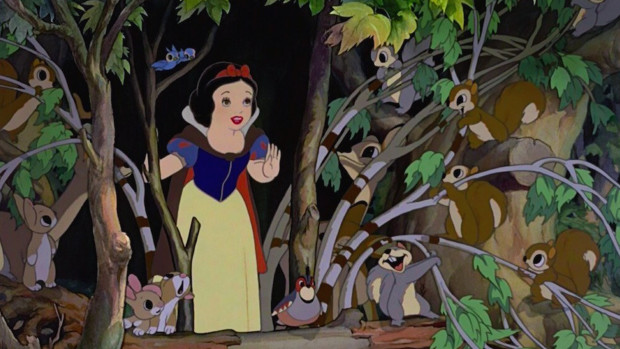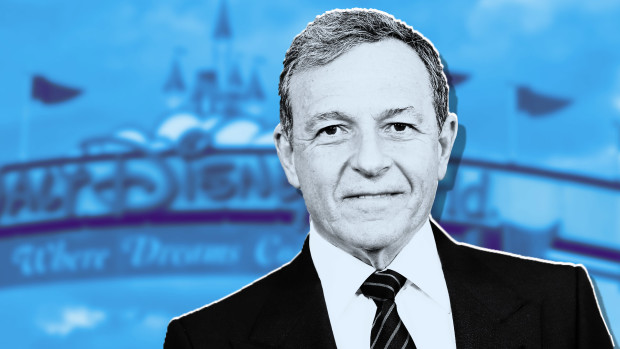
Time moves forward and societal norms change. In 1937, when the original Walt Disney version of "Snow White" came out women had been able to vote for less than 20 years in the United States as the 19th Amendment to the Constitution was ratified in 1920.
In the 1930s, women were still largely expected to find a husband and settle down to have children.
DON'T MISS: The Bud Light Controversy and Its Impacts Explained
Women were technically allowed to go to college, but even that path was very limited.
"For the women who did manage to go to college in the 1930s, the atmosphere on campus was sobering. Discouraged from pursuing courses outside the liberal arts, denied leadership positions on campus, and pressured into marriage, women found many career paths closed to them," The Filson Club History Quarterly reported.
So, it's not entirely surprising that Walt Disney (the man) built the original "Snow White" around the idea of the lead character waiting around for a man to fall in love with. That's actually the plot of a whole lot of Walt Disney (DIS) -) movies and, for many of them, that was simply a product of the time period they were created in.
It's logical that a new version of the classic film is being updated, but a comment from Rachel Zeigler, the actress playing Snow White in the live-action remake of the film, trended on Twitter on July 23.
“It’s no longer 1937…and she’s not going to be saved by the Prince and she’s not going to be dreaming about true love,” said the actress.
That, however, is not the only controversy surrounding the "Snow White" remake. Ziegler has also faced a backlash for being Latino. In addition, Disney has been criticized for appearing to replace the Seven Dwarfs from the classic fairytale with a mix of non-Dwarf characters.

Image source: Shutterstock/TheStreet Illustration
Disney's Remakes Have All Included Changes
Disney has had a lot of success remaking some of its classic animated films. The company's remake of "Aladdin" made over $1 billion at the box office and it was not a word-for-word remake of the original.
In fact, it actually included some changes that empower Princess Jasmine, the female lead of the movie.
"The animated Jasmine wanted to escape the laws of Agrabah that held her back and marry for love, not be paired with someone in an arranged marriage. The new Jasmine is still being forced to see potential suitors to marry, something she doesn't take kindly to, but she's more ambitious and asks her father why she simply can't be the next Sultan," Insider reported.
Changes were also made in Disney's live-action remake of 1950's "Cinderella," which grossed $542 million globally.
"Disney’s release of the animated version in 1950 was a huge success, but it perpetuated the idea that Cinderella is a damsel in distress who needs a prince to save her," Collider reported. "But the trend of shallow 'Cinderella' productions was uprooted by Disney’s release of their live-action adaptation in 2015, with Lily James at the forefront. This time around the audience is given more insight into the characters’ actions, which makes for more meaningful dialogue and plot development, and an overall more thoughtful telling of the ancient fairytale."
Disney Faces a 'Woke' Backlash, But That's Not All
When Disney released its "Cinderella" and "Aladdin" live-action remakes, it was simply a different world. There were, of course, people outraged at changes made from the originals, but the company was not operating in today's hostile environment where there's an organized movement ready to be offended at any changes made designed to make a movie (or a theme park) more inclusive.
Disney now operates in a climate where Florida Gov. Ron DeSantis -- who runs the state where Disney World drives billions of dollars in tourism revenue -- has targetted the company in his so-called "war on woke." DeSantis has accused Disney of sexualizing children (without providing evidence of the company doing that) and he has openly mocked its efforts to make its movies, TV shows, and theme parks more reflective of its diverse customer base.
The "Snow White" backlash is rooted in the same "anti-woke" fervor which has punished Anheuser-Busch (BUD) -) for hiring Dylan Mulvaney, a transgender social media influencer for a small Bud Light marketing campaign. Disney now faces an environment where any move toward inclusion and diversity risks a Bud Light-style backlash.
That probably won't sink "Snow White," at least on its own. The reality is that the environment for making movies designed for theatrical release has never been worse and likely won't ever get better.
"Snow White" will probably fail by traditional box office metrics, but so will nearly every film. Whether this remake succeeds will actually likely be part of a bigger story about streaming subscriptions and how Disney might make money from all the ancillary ways it can monetize content.







